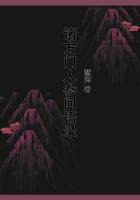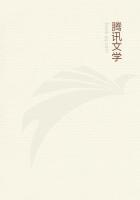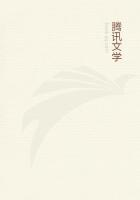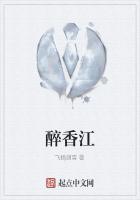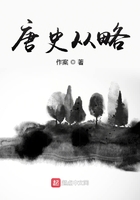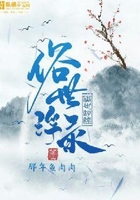342. Alas, thou lovely lake! etc. "Observe Scott's habit of looking at nature, neither as dead, nor merely material, nor as altered by his own feelings; but as having an animation and pathos of its own, wholly irrespective of human passion--an animation which Scott loves and sympathizes with, as he would with a fellow creature, forgetting himself altogether, and subduing his own humanity before what seems to him the power of the landscape. ... Instead of ****** Nature anywise subordinate to himself, he makes himself subordinate to HER--follows her lead simply--does not venture to bring his own cares and thoughts into her pure and quiet presence--paints her in her ****** and universal truth, adding no result of momentary passion or fancy, and appears, therefore, at first shallower than other poets, being in reality wider and healthier" (Ruskin).
344. Bosky. Bushy, woody. Cf. Milton, Comus, 313: "And every bosky bourn from side to side;" Shakespeare, Temp. iv. i. 81: "My bosky acres and my unshrubb'd down," etc.
347. Seems for the scene, etc. The MS. has "Seems all too lively and too loud."349. Duncraggan's huts. A homestead between Lochs Achray and Vennachar, near the Brigg of Turk.
355. Shot him. See on i. 142 above. Scott is much given to this construction.
357. The funeral yell, etc. The MS. has "'T is woman's scream, 't is childhood's wail."Yell may at first seem too strong a word here, but it is in keeping with the people and the times described. Besides Scott was familiar with old English poetry, in which it was often used where a modern writer would choose another word. Cf. Surrey, Virgil's AEneid: "With wailing great and women's shrill yelling;"and Gascoigne, De Profundis:
"From depth of doole wherein my soule dooth dwell, . . . . . . . . . . .
O gracious God, to thee I crie and yell."
362. Torch's ray. The 1st ed. reads "torches ray" and supply;"corrected in the Errata to read as in the text. Most eds. print "torches' ray."369. Coronach. Scott has the following note here: "The Coronach of the Highlanders, like the Ululatus of the Romans, and the Ululoo of the Irish, was a wild expression of lamentation, poured forth by the mourners over the body of a departed friend. When the words of it were articulate, they expressed the praises of the deceased, and the loss the clan would sustain by his death.
The following is a lamentation of this kind, literally translated from the Gaelic, to some of the ideas of which the text stands indebted. The tune is so popular that it has since become the war-march, or gathering of the clan.
Coronach on Sir Lauchlan, Chief of Maclean.
'Which of all the Senachies Can trace thy line from the root, up to Paradise, But Macvuirih, the son of Fergus?
No sooner had thine ancient stately tree Taken firm root in Albin, Than one of thy forefathers fell at Harlaw.--'T was then we lost a chief of deathless name.
''T is no base weed--no planted tree, Nor a seedling of last Autumn;Nor a sapling planted at Beltain;[FN#7]([FN#7] See on ii. 319 above.)
Wide, wide around were spread its lofty branches--But the topmost bough is lowly laid!
Thou hast forsaken us before Sawaine.[FN#8]([FN#8] Hallowe'en.)
'Thy dwelling is the winter house;--
Loud, sad, and mighty is thy death-song!
Oh! courteous champion of Montrose!
Oh! stately warrior of the Celtic Isles!
Thou shalt buckle thy harness on no more!'
"The coronach has for some years past been suspended at funerals by the use of the bagpipe; and that also is, like many other Highland peculiarities, falling into disuse, unless in remote districts."370. He is gone, etc. As Taylor remarks, the metre of this dirge seems to be amphibrachic; that is, made up of feet, or metrical divisions, of three syllables, the second of which is accented. Some of the lines appear to be anapestic (made up of trisyllabic feet, with the last syllable accented); but the rhythm of these is amphibrachic; that is, the rhythmic pause is after the syllable that follows the accent.
"(He) is gone on | the mountain, {Like) a summer- | dried fountain."Ten lines out of twenty-four are distinctly amphibrachic, as "To Duncan | no morrow."So that it seems best to treat the rest as amphibrachic, with a superfluous unaccented syllable at the beginning of the line.
Taylor adds: "The song is very carefully divided. To each of the three things, mountain, forest, fountain, four lines are given, in the order 3, 1, 2."384. In flushing. In full bloom. Cf. Hamlet, iii. 3. 81:
"broad blown, as flush as May."
386. Correi. A hallow in the side of a hill, where game usually lies.
387. Cumber. Trouble, perplexity. Cf. Fairfax, Tasso ii. 73:
"Thus fade thy helps, and thus thy cumbers spring;" and Sir John Harrington, Epigrams, i. 94: "without all let [hindrance] or cumber."388. Red. Bloody, not afraid of the hand-to-hand fight.
394. Stumah. "Faithful; the name of a dog" (Scott).
410. Angus, the heir, etc. The MS. reads:
"Angus, the first of Duncan's line, Sprung forth and seized the fatal sign, And then upon his kinsman's bier Fell Malise's suspended tear.
In haste the stripling to his side His father's targe and falchion tied."439. Hest. Behest, bidding; used only in poetry. Cf.
Shakespeare, Temp. iii. 1. 37: "I have broke your hest to say so;" Id. iv. 1. 65: "at thy hest," etc.
452. Benledi saw the Cross of Fire, etc. Scott says here:
"Inspection of the provincial map of Perthshire, or any large map of Scotland, will trace the progress of the signal through the small district of lakes and mountains, which, in exercise of my imaginary chieftain, and which, at the period of my romance, was really occupied by a clan who claimed a descent from Alpine,--a clan the most unfortunate and most persecuted, but neither the least distinguished, least powerful, nor least brave of the tribes of the Gael.

